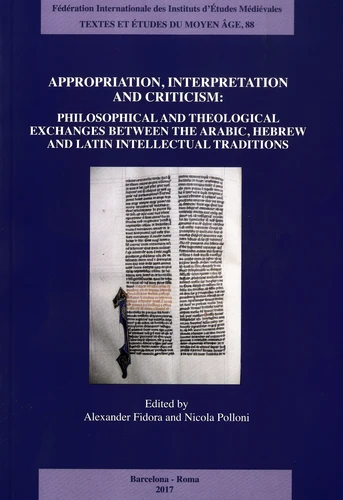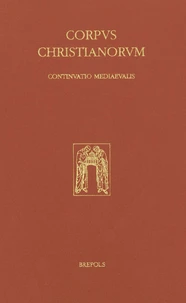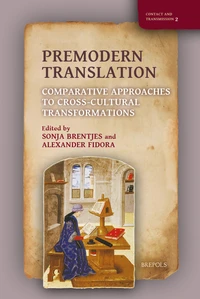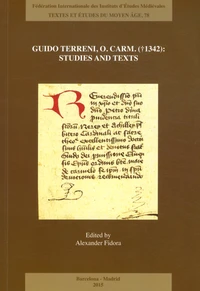Appropriation, Interpretation and Criticism. Philosophical and Theological Exchanges Between the Arabic, Hebrew and Latin Intellectual Traditions
Par : ,Formats :
- Paiement en ligne :
- Livraison à domicile ou en point Mondial Relay entre le 5 août et le 19 aoûtCet article sera commandé chez un fournisseur et vous sera expédié 2 à 4 semaines après la date de votre commande.
- Retrait Click and Collect en magasin gratuit
- Livraison à domicile ou en point Mondial Relay entre le 5 août et le 19 août
- Réservation en ligne avec paiement en magasin :
- Indisponible pour réserver et payer en magasin
- Nombre de pages336
- PrésentationBroché
- FormatGrand Format
- Poids0.565 kg
- Dimensions16,5 cm × 24,0 cm × 1,6 cm
- ISBN978-2-503-57744-9
- EAN9782503577449
- Date de parution01/01/2017
- CollectionTextes et études du Moyen Age
- ÉditeurBrepols
Résumé
The contributions in this volume are dedicated to cross-cultural exchanges during the Middle Ages among exponents of the Arabic, Hebrew and Latin philosophical and theological traditions. They draw particular attention to the intellectual approaches which shaped the interplays among these traditions — interplays that were characterized by the contact of various languages being used by people of different religious beliefs in their quest for knowledge : Spanish Jews writing in Arabic, Jews collaborating in the translation of Arabic texts into Latin through the vernacular, Western Muslims whose writings were read mainly by Jews and Christians in Hebrew and Latin, etc.
Altogether, the eleven studies contained in this book wish to offer new insights into the rich exchanges of knowledge among communities of learning and their scholarly traditions during the Middle Ages and beyond.
Altogether, the eleven studies contained in this book wish to offer new insights into the rich exchanges of knowledge among communities of learning and their scholarly traditions during the Middle Ages and beyond.
The contributions in this volume are dedicated to cross-cultural exchanges during the Middle Ages among exponents of the Arabic, Hebrew and Latin philosophical and theological traditions. They draw particular attention to the intellectual approaches which shaped the interplays among these traditions — interplays that were characterized by the contact of various languages being used by people of different religious beliefs in their quest for knowledge : Spanish Jews writing in Arabic, Jews collaborating in the translation of Arabic texts into Latin through the vernacular, Western Muslims whose writings were read mainly by Jews and Christians in Hebrew and Latin, etc.
Altogether, the eleven studies contained in this book wish to offer new insights into the rich exchanges of knowledge among communities of learning and their scholarly traditions during the Middle Ages and beyond.
Altogether, the eleven studies contained in this book wish to offer new insights into the rich exchanges of knowledge among communities of learning and their scholarly traditions during the Middle Ages and beyond.





